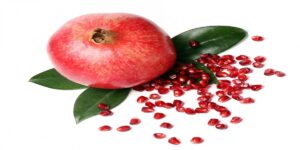Does Pomegranate Boost Testosterone Levels – Know Science!

Over the last few years, pomegranate has managed to turn heads for its purported ability to boost testosterone levels. It is no surprise that it is considered a super-fruit universally and has been admired for its potential health benefits. However, determining whether pomegranate is a genuine testosterone booster or not requires a closer analysis of the available scientific resources.
This article will help you understand the real science behind pomegranate and testosterone and whether it actually boosts hormone levels.
Antioxidant And How It Works
Antioxidants, which are abundantly found in many foods in our daily diet, have some solid contribution to body functioning. They work by neutralizing the free radicals in the body. It thus reduces oxidative stress, which can otherwise impair cells and contribute to various health issues, including aging, chronic ailments, and hormonal imbalances.
Aside from that, antioxidants are anti-inflammatory by nature and help reduce inflammation. This assists in quick muscle recovery during heavy workout sessions. They have also been associated with promoting heart health, a healthy immune functioning, and can potentially reduce the risk of certain diseases, such as cancer among others.
All that said, how does pomegranate help in testosterone synthesis?
Effect Of Pomegranate On Testosterone

Pomegranate, as stated earlier, has an abundant amount of antioxidants, majorly polyphenols. Some clinical trials and research studies show that these compounds may affect testosterone health positively in addition to diverse other health benefits.
A case in point would be, the study published in the journal “Clinical Nutrition” dating back to 2008. It reported that intake of pomegranate juice revamped the sperm count, boosted sperm quality and testosterone levels in animal subjects.
Another study in 2012 supports this finding. The research reported elevated salivary testosterone levels in test subjects who took pomegranate juice in the concentrated form. Aside from that, it showed an improvement in mood, blood pressure, and overall body functioning in men.
It is, however, important to note that the current clinical trials and reports on the reaction of pomegranate on testosterone levels are sparse and often indecisive. A few studies have brought in contradictory results, while others have been tried on animals or have used small sample sizes. It is also important to note that the process in which pomegranate might impact testosterone levels is not yet fully clear even though it has exhibited beneficial properties associated with health and wellness in general.
While pomegranate has emerged as a potential testosterone booster, supplemental research is essential to establish a definitive connection. It is always advisable to consult with a healthcare professional before relying on any supplement or natural remedy to enhance testosterone levels.
Conflicting Reports on Pomegranate And its Ability To Improve Testosterone Levels

Certain studies on pomegranate and its ability to improve testosterone levels have yielded conflicting results and interpretations. Even though some studies suggest a positive association between pomegranate and testosterone, others have found that there has been no significant impact, positive or negative whatsoever, on the hormone.
For example, a report published in the 2017 Journal of the International Society of Sports Nutrition found that there were no noticeable changes in testosterone levels after pomegranate extract supplementation. The study involved the collection of blood samples of nine distinguished weightlifters in both sedentary state and post-workout states.
However, the researchers weren’t able to come to a firm conclusion on whether pomegranate supplementation can really help or adversely affect testosterone levels owing to certain shortcomings in this trial. For example, the study was conducted only on nine subjects which is too small a number. All the subjects were professional weightlifters which means the test may show different results on those who are not into extensive weightlifting.
Likewise, a research paper from 2015 also indicated that pomegranate had no altering effect on testosterone concentration in healthy male volunteers. In “Journal of Strength and Conditioning Research” in 2017 published a similar report wherein they found zero significant changes in testosterone levels after having resistance-trained individuals take pomegranate supplementation.
It is important to understand that there can be several factors behind the antithetical outcomes. Some of these factors include variations in sample sizes or demographics, the structure of the study, and duration and dosage of supplementation. Aside from that, the specific elements in pomegranate, like polyphenols or other compounds, may have different concentrations, leading to varying outcomes.
Luckily, pomegranate peel extract has proven to help reduce testicular tissue damage in one of the clinical trials conducted on animals suffering from testicular torsion.
Conclusion
The bottom line is whether pomegranate is competent enough to boost testosterone levels remains a debatable subject. While a few studies have derived a potential positive association between pomegranate and testosterone, some studies have presented otherwise. This clearly indicates that, in order to come to a firm conclusion on the exact influence of pomegranate on testosterone improvement, more research studies and evidence should be conducted.
From the currently available evidence, it is fair to say that pomegranate’s effect on testosterone presence may vary from person to person depending on factors such as dosage, duration of supplementation, and the bioavailability of the components present in pomegranate, etc. Therefore, it is important to proceed with this subject with utmost care, keeping in mind the available evidence while acknowledging the limitations in the current data.
